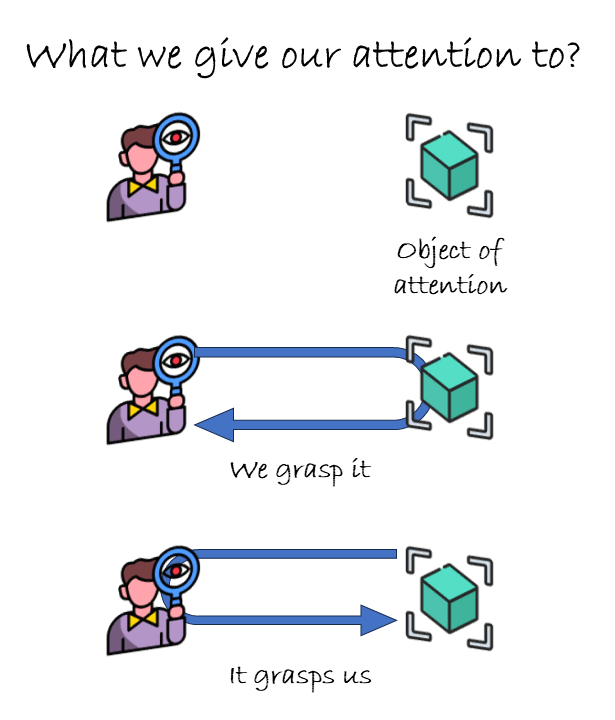We often underestimate the pivotal role that attention plays in our lives. While we recognize its importance when we fail to focus—such as when we ask someone to repeat what they said or reread something multiple times to understand it—the significance of attention goes far beyond comprehension. Attention not only helps us grasp things but also determines what grasps us.
When we give our attention to something, such as an advertisement during a TV show or a movie, the object of our focus starts gaining a place in our consciousness. The more attention we give to it, knowingly or unknowingly, the more authority it gains over us. This is why repetition is a cornerstone of advertising. Repeated exposure to a product, even passively, can lead to a belief that the product is desirable, prompting us to purchase it.
The Bhagavad Gita underscores the power of attention in 2.62, explaining how contemplation leads to attachment, craving, and eventually the suppression of intelligence, which results in self-destructive actions. It’s as if whatever we give attention to invades our consciousness like an army, gradually occupying and ruling over it.
Understanding this reality highlights the need to be vigilant about where we direct our attention. Just as attention to the wrong things can have catastrophic consequences, directing attention wisely can have constructive outcomes.
In our spiritual life, when we focus on Krishna, he enters and pervades our consciousness, not as an invader but as a benevolent guide. By giving our attention to Krishna, we allow him to direct our choices for our ultimate well-being, leading us toward a brighter future. The Bhagavad Gita repeatedly emphasizes the importance of remembering Krishna—encouraging us to focus our attention on him and thereby let him influence our lives positively.

Summary:
- Attention not only determines what we can grasp but also what grasps us.
- Advertisers exploit this principle by repeatedly exposing us to products, which then gain a controlling influence over us, often leading to compulsive desires.
- Carelessly giving attention to harmful things can lead to self-destructive behavior, as illustrated in Bhagavad Gita 2.62. By consciously giving our attention to Krishna, we invite him to guide us toward the best choices and the brightest future.
Think it over:
- Recall any incident where you accidentally gave your attention to something and it gained control over you, leading to unhealthy actions.
- Reflect on how contemplation, as described in Bhagavad Gita 2.62, can transform a small stimulus into a destructive force within us.
- Identify practical steps to direct your attention constructively and use its power safely and positively.
***
02.62 While contemplating the objects of the senses, a person develops attachment for them, and from such attachment lust develops, and from lust anger arises.


Leave A Comment